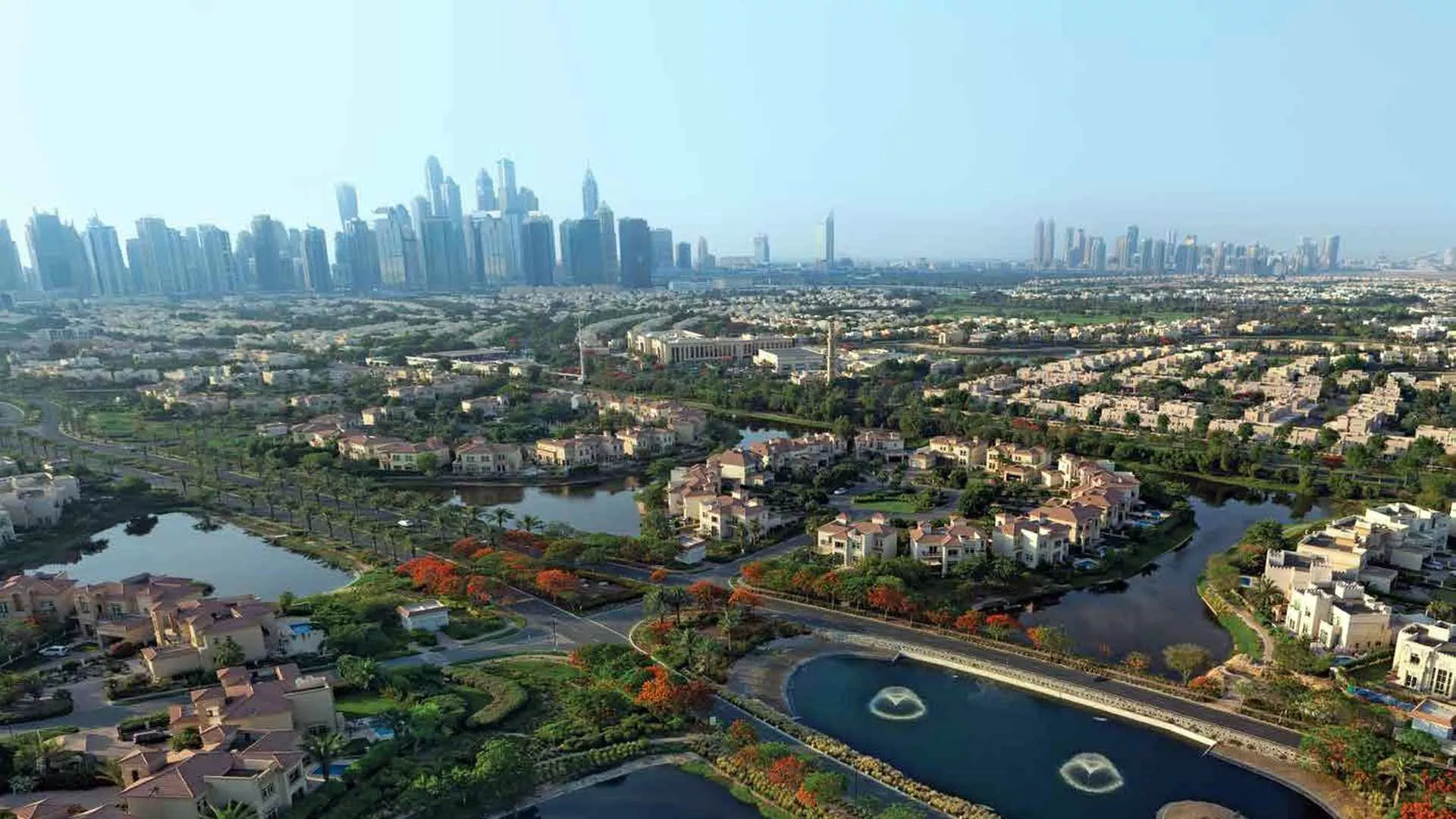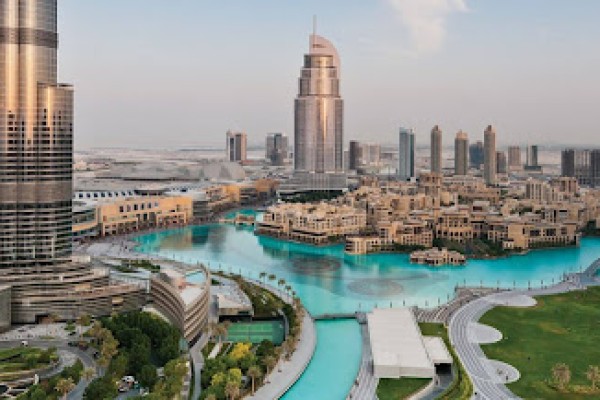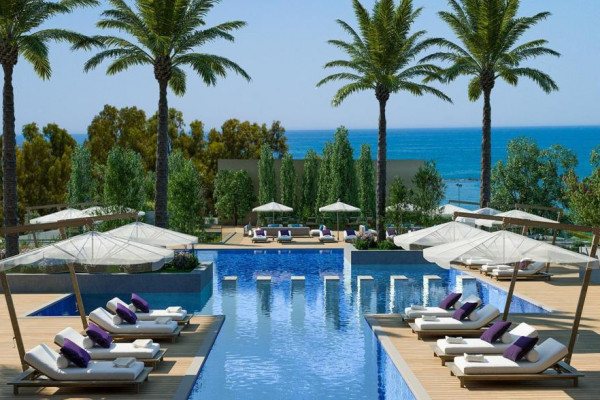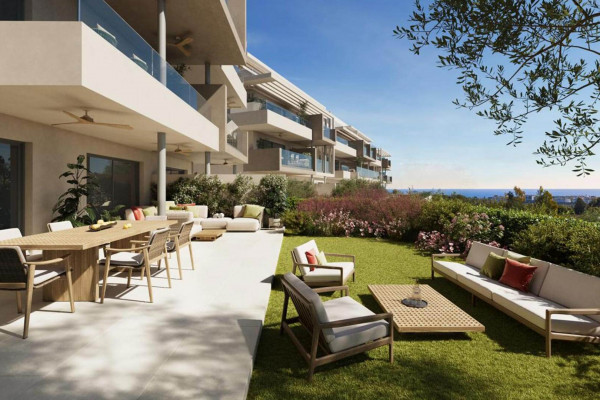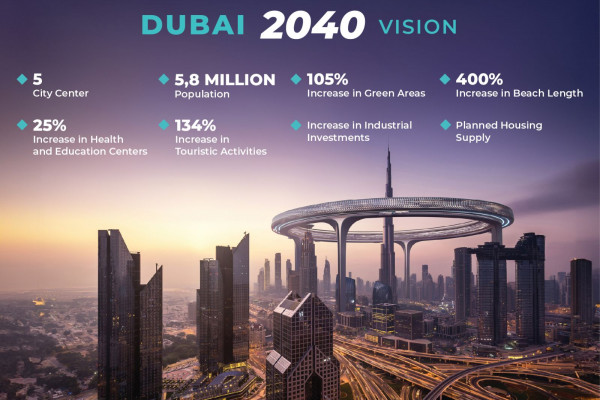Dubai Megapolis – The Capital of the Largest Emirate
Dubai is the capital of the most populous emirate in the United Arab Emirates. The city is home to 3.5 million people, about 90% of whom are expatriates. Why is the percentage of expats so high compared to locals? The reason lies in the government's strategic goal of attracting new residents. Dubai is actively expanding, with new districts and residential areas continuously emerging. According to government plans, the city's population is expected to reach 5.8 million in the next 20 years. Over the past year alone, Dubai’s population has grown by 100,000 people and continues to rise rapidly.
Due to the current political situation, many of our compatriots are relocating to Dubai, purchasing real estate, and obtaining residence visas. For those considering buying property in Dubai, the main question is: Which area to choose? Let’s explore the most promising ones.
Downtown Dubai: The Tourist Center
Downtown Dubai offers good transport connectivity to other areas. It is easily accessible from key business hubs such as Business Bay, the Dubai Internet City tech park, and the DIFC economic zone. Downtown boasts well-developed residential and transport infrastructure, with numerous shops, restaurants, a metro line, and plenty of bus routes. A small but beautiful green park is located in the center. The district was developed by Emaar, a leading real estate developer.
Downtown Dubai is the city’s main attraction and the first place visitors explore. It is home to Dubai’s most famous landmarks, including the iconic Burj Khalifa , the world’s largest shopping mall, Dubai Mall , the Dubai Opera , the dancing fountains , and other well-known sites. As a result, Downtown is always bustling with tourists.
The district is part of the freehold zones , meaning that foreigners can purchase property with full ownership rights. However, access to beaches is less convenient, requiring a 20-minute car ride. Another downside is the lack of schools, with only kindergartens available. Naturally, as a major tourist hub, Downtown has some of the highest real estate prices in the city.
- Average property price: 2,700 AED per square foot (~$7,900 per square meter).
- Minimum property price: $5,000–$7,000 per square meter on the secondary market.
- Average annual rent: 180,000 AED (~$49,000).
Due to the high demand, rental prices are also steep, which benefits investors looking to profit from rental income.
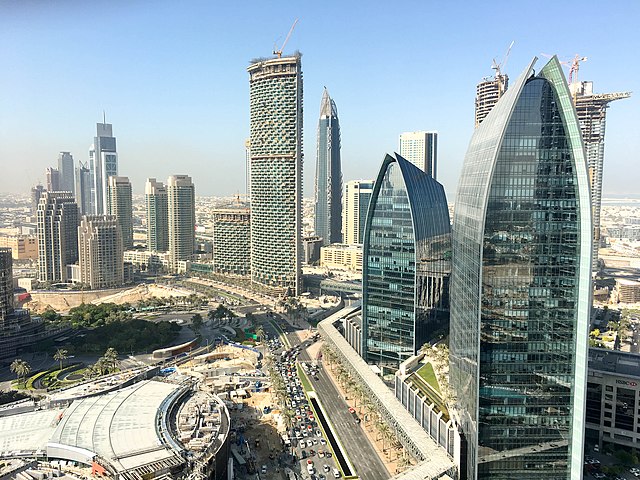
Business Bay: The Financial District
Business Bay is located along the Dubai Canal , between Downtown and Jumeirah. It is one of the Middle East’s key financial centers, with most of the district occupied by office and commercial spaces. However, there are also numerous residential complexes.
The district is mainly populated by young professionals, freelancers, business owners, and office workers . It is not particularly family-friendly due to the lack of parks and playgrounds. The exception is young families with small children , as Business Bay has many nurseries and primary schools. However, for older children, parents need to drive to schools in neighboring areas. Nearby prestigious international schools include GEMS and Safa British School .
Business Bay is well connected to other business hubs such as Dubai Internet City and DIFC. The area has its own metro station and numerous bus routes.
- Average property price: 3,000 AED per square foot (~$6,400 per square meter).
- Average annual rent: 107,000 AED (~$29,000).
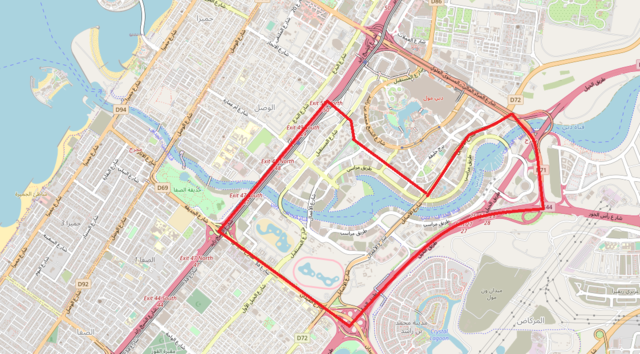
Dubai Marina: Luxury Living in the Heart of the City
Dubai Marina offers a beachfront lifestyle with high transport accessibility , featuring two metro stations, buses, and tram routes. The district has a well-balanced mix of residential and commercial buildings. The massive Marina Mall and the scenic Dubai Marina Walk , a 7-km-long promenade, are among the area's highlights.
Dubai Marina is famous for its stunning skyline , featuring iconic skyscrapers like the twisting Cayan Tower and the Princess Tower . It is often showcased as a symbol of Dubai.
- Average property price: 1,500 AED per square foot (~$4,200 per square meter).
- New developments: Prices can go up to 3,900 AED per square foot (~$11,300 per square meter).
- Average annual rent: 150,500 AED (~$41,000).
While Dubai Marina is one of the best areas to live in, it has a few downsides : heavy traffic congestion during peak hours, noise, and a lack of schools.
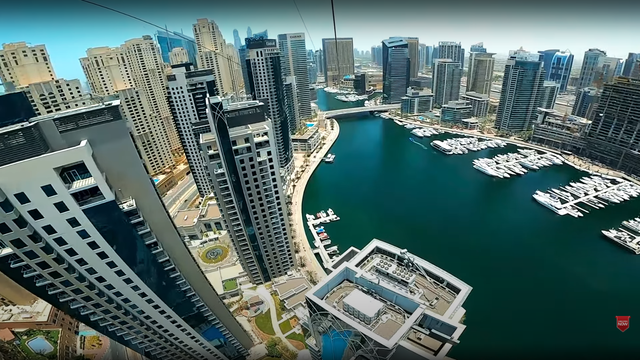
Jumeirah: The Elite Coastal Neighborhood
Now, let’s move on to quieter areas. Jumeirah offers a break from the towering skyscrapers, featuring low-rise luxury villas along the coastline.
Transport accessibility is lower compared to other areas. Most residents rely on cars or taxis, as the nearest metro station is far from the coast and closer to Sheikh Zayed Road .
Jumeirah is ideal for families , offering everything needed for a comfortable life: numerous shops, cafes, schools, nurseries, and clinics . The area has large green spaces like Safa Park and Jumeirah Beach Park , as well as plenty of public beaches with water sports activities.
- Average property price: 2,200 AED per square foot (~$6,400 per square meter).
- Average annual rent (apartment): 150,000 AED (~$41,000).
- Average annual rent (villa): 475,000 AED (~$129,000).
Jumeirah is one of the most prestigious and expensive districts in Dubai, making it a prime choice for high-net-worth individuals.
Palm Jumeirah: Dubai’s Iconic Landmark
Palm Jumeirah, the world’s largest artificial island , needs no introduction. Almost the entire island is occupied by luxury villas and hotels , including the iconic Atlantis Hotel and its famous aquapark .
Transport connectivity is limited , with only a monorail connecting the island to the mainland. However, new transport links will be introduced as part of the Palm Islands mega-development.
Despite its tourism-oriented infrastructure, Palm Jumeirah is still suitable for both families and professionals . The island has several clinics, two nurseries, a large shopping mall, and supermarkets from leading chains.
- Average property price: 3,250 AED per square foot (~$9,500 per square meter).
- Average annual rent (apartment): 220,000 AED (~$60,000).
- Average annual rent (villa): 875,000 AED (~$238,000).
Palm Jumeirah is a symbol of luxury living in Dubai and remains one of the most exclusive places to own property.
DUBAI HILLS ESTATE: A GREEN OASIS
In 2022, Dubai Hills Estate opened its large shopping mall, Dubai Hills Mall, featuring world-renowned brands, unique restaurants, and a cinema. For families with children, the district offers a private kindergarten and three branches of the prestigious British private school, GEMS.
Hills Estate is equidistant from Downtown and Marina, taking about 15-20 minutes to reach either by car. The nearest beach is also about 15 minutes away. The district is characterized by vast green spaces, with a significant portion of the land dedicated to parks and gardens. It features Dubai Hills Park, covering 180 square meters, an 18-hole golf club, a large skate park, a 54-kilometer cycling track, and tennis courts.
Dubai Hills Estate is a serene green oasis within the city’s hustle and bustle. The average annual rent for an apartment is 282,500 AED ($77,000). Property prices average 1,900 AED per square foot ($5,400 per square meter).
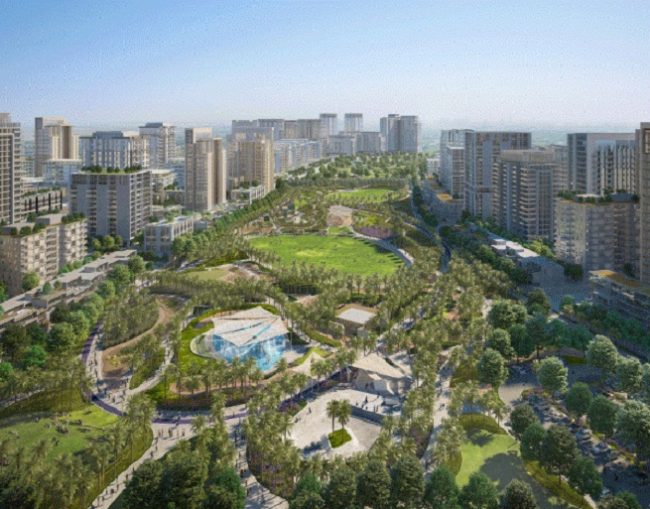
MEYDAN CITY: AN ELITE LOCATION WITH A VIBRANT LIFESTYLE
Meydan City is another sub-district within MBR City. It borders Business Bay and is close to the Dubai Design District free zone and the Ras Al Khor Flamingo Sanctuary. Meydan is well known for housing one of the world’s largest horse racing venues, the Meydan Racecourse.
Meydan is also home to the Meydan Free Zone, where foreign residents can register as freelancers or start their businesses. This provides an opportunity for those seeking residency in Dubai.
Meydan City offers some of Dubai’s most prestigious and in-demand real estate. It is a lively area with many entertainment venues, including top restaurants, bars, clubs, and cinemas.
The average annual rent for an apartment is 145,000 AED ($39,500). Property prices are approximately 1,800 AED per square foot ($5,200 per square meter). Despite its vibrant nightlife and startup culture, the district is also comfortable for families. It features a French international school and a British school for girls, with other schools such as GEMS, Safa, and Hartland within a ten-minute drive.
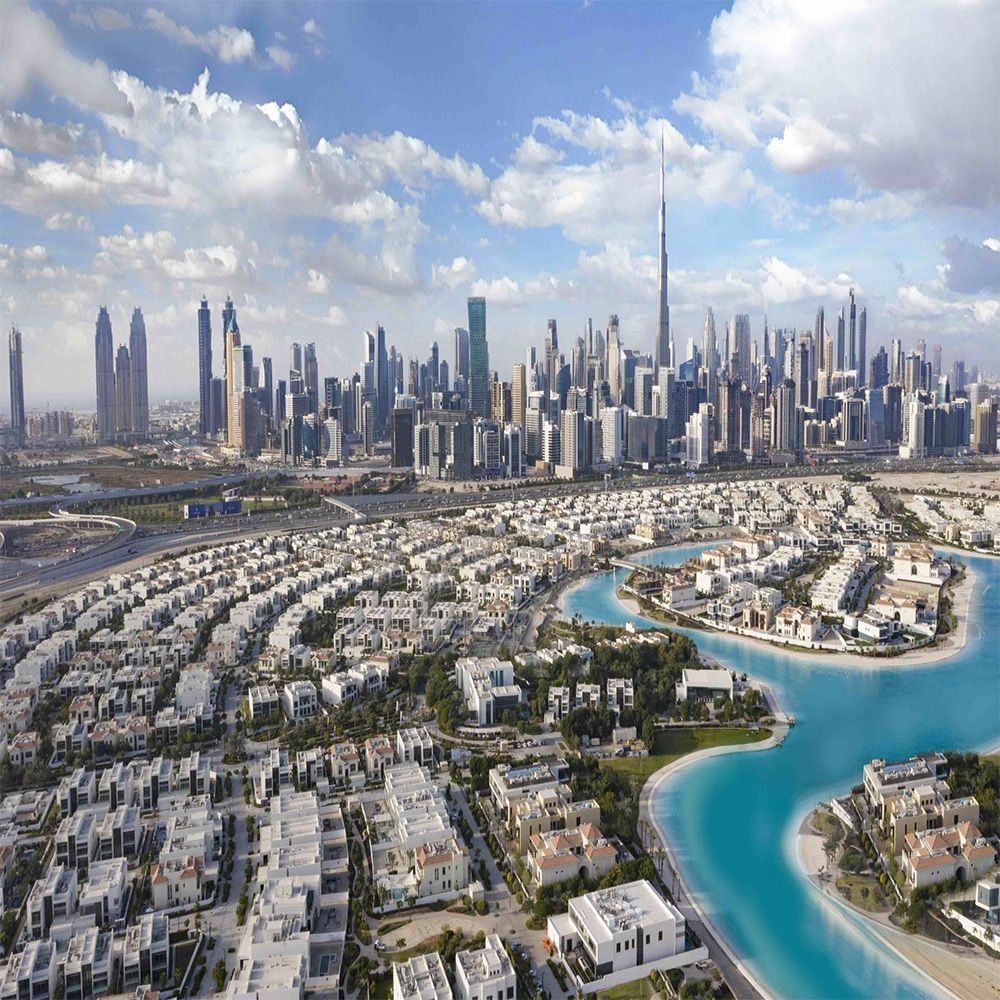
JUMEIRAH VILLAGE CIRCLE: TRANQUILITY AND EVERYDAY COMFORT
Jumeirah Village Circle (JVC) consists mainly of villas and low-rise apartment complexes. Additionally, it features cozy clubhouses with their own infrastructure, including gyms, swimming pools, co-working spaces, children’s clubs, and even gardens.
JVC is known for its comfortable living environment, with parks, supermarkets, fitness centers, and pools. The district is also family-friendly, boasting five kindergartens and the JSS International School, which follows the Indian curriculum.
JVC is conveniently located near two major highways, making it easy to access any part of Dubai by car. However, it should not be confused with Jumeirah itself; JVC is about 15-20 minutes away from Palm Jumeirah by car. The district's name comes from its radial planning, with roads extending outward in circles and converging toward the center.
The average annual rent for an apartment is 282,500 AED ($77,000). Property prices in JVC make it an attractive investment option, with relatively lower costs than Dubai’s elite districts.
Dubai continues to evolve, offering a wide range of residential options for expats and investors alike. Each district has its own unique advantages, catering to different lifestyles, budgets, and investment strategies. Whether seeking luxury, convenience, or affordability, Dubai has something for everyone.
